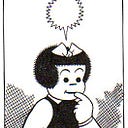When I Was Anglo-Saxon
I lived for a couple of years in Israel, when the country and I were both much younger. I studied Hebrew for five months with an international group of émigrés, refugees, and wayfarers, and then I took a series of office jobs in Tel Aviv, Haifa, and Jerusalem. My spoken Hebrew was pretty good by then. My reading and writing were slightly better than adequate. I carried a teudat oleh: an immigrant certificate that entitled me to health insurance. I was a Jew in the so-called Jewish homeland— a non-observant ultra-Reform Jew, but Jewish enough to qualify for full citizenship if I chose it. What’s more, I had family ties. My father had been born in British Mandate Tel Aviv, his sister and brothers in Jerusalem. My father’s father had been brought to Turkish-ruled Palestine as a toddler. My father’s mother had been born in the ancient city of Hebron, in the Judean mountains. By the time of my own birth, they were all in Los Angeles (except my grandfather, who had died after he emigrated), but they still spoke Hebrew and a few words of Arabic.
I thought I had a reasonably solid claim to Israeli-ness. I imagined I might feel at home. But that was before I noticed that Israelis, native born or not, referred to me as an “Anglo-Saxon.”
It wasn’t just me. Anglo-Saxon — on Israeli tongues it sounds like AHN-glo SAHKS-ohn — was what Israelis back then called anyone whose native language…
